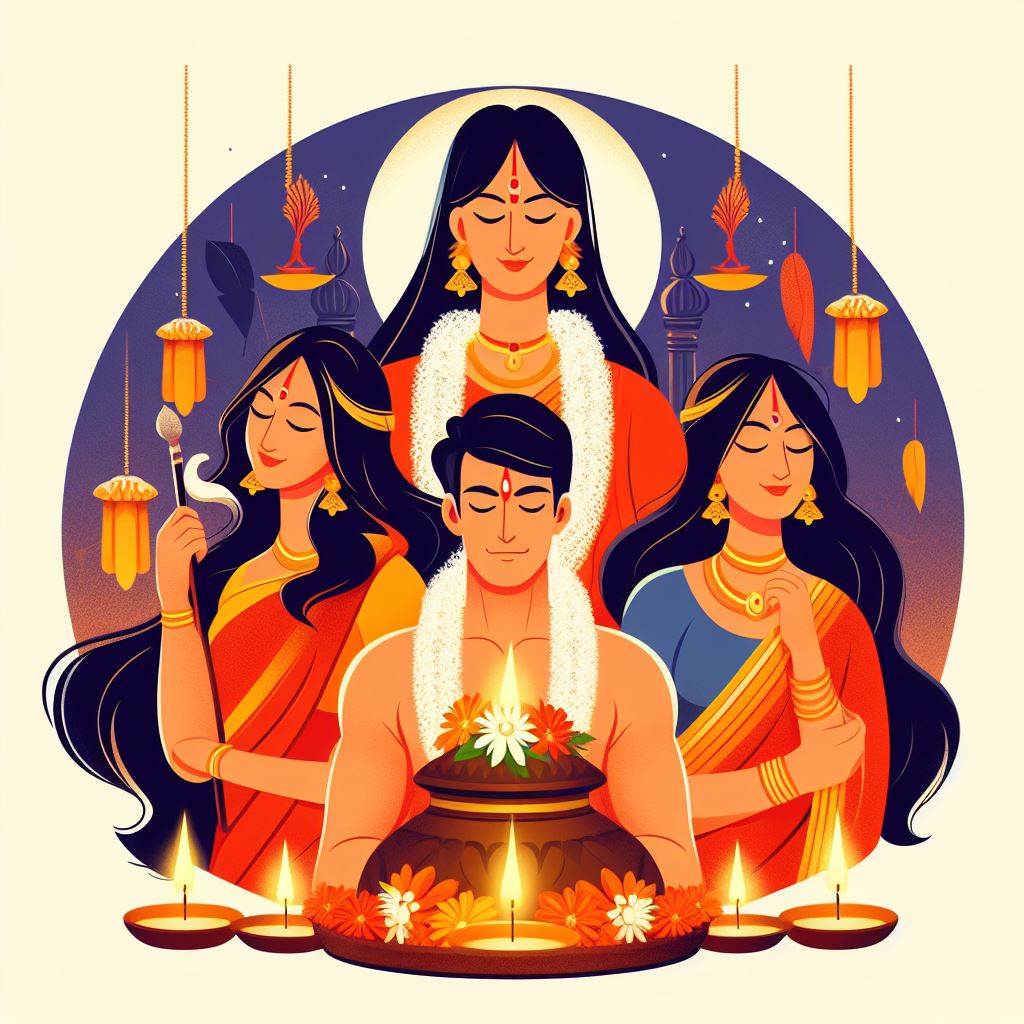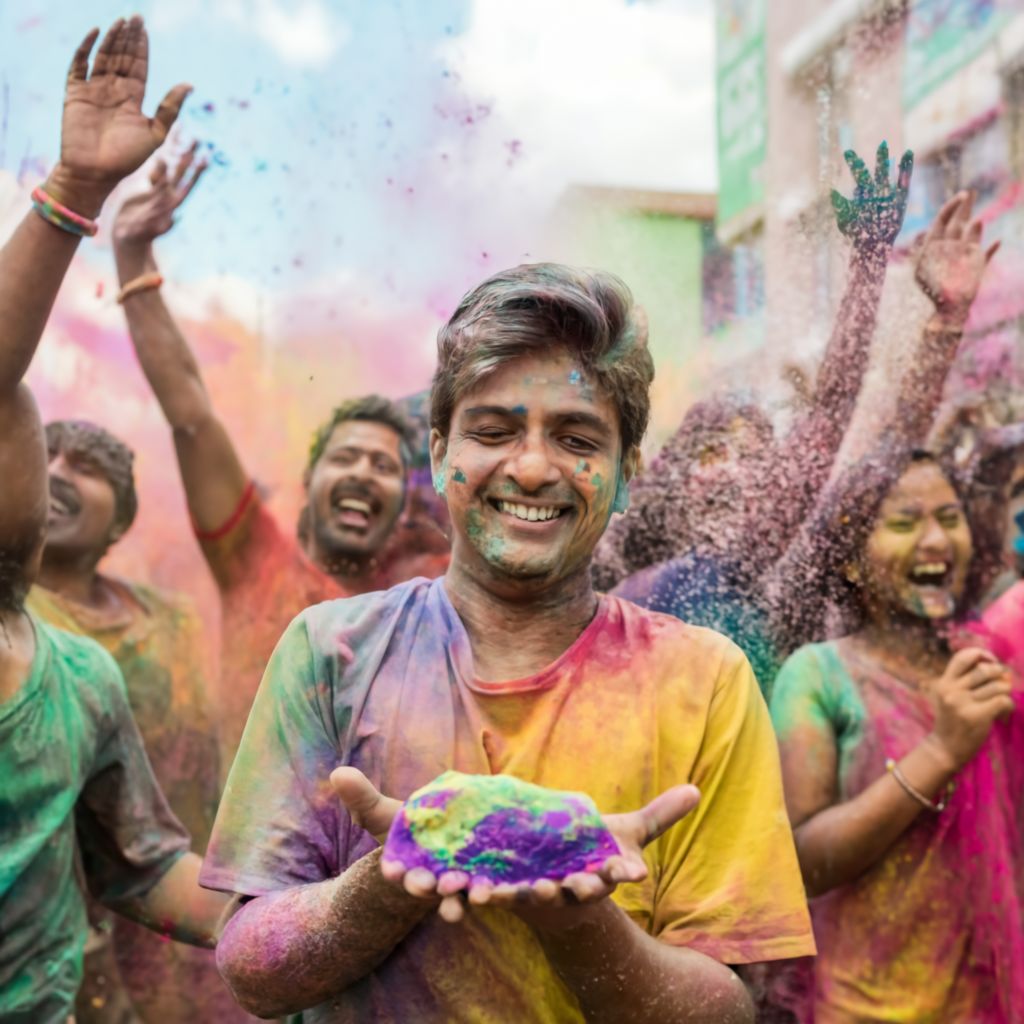
March in India is a kaleidoscope of colors, traditions, and spiritual awakenings. As the country transitions from the coolness of winter to the warmth of spring, a vibrant tapestry of festivals unfolds, each offering a unique glimpse into the soul of India. From the playful exuberance of Holi to the reflective stillness of Mahashivratri, these celebrations resonate with the rhythm of life, reminding us of our interconnectedness with the universe.
For the Zen traveler seeking an immersive cultural experience, March presents a plethora of opportunities to connect with the essence of India. Let’s embark on a journey through some of the most prominent festivals celebrated in March, approaching them with a Zen perspective that emphasizes mindfulness, presence, and inner peace.
1. March 6th: Chapchar Kut – A Celebration of Spring’s Renewal
Our expedition begins in the verdant state of Mizoram, where the Chapchar Kut festival marks the arrival of spring. Characterized by energetic dances, vibrant costumes, and the joyous sounds of bamboo instruments, this festival resonates with the Zen principle of celebrating new beginnings. As we witness the local communities come together to express their gratitude for nature’s bounty, we are reminded to find joy in the simple pleasures of life and embrace the transformative power of each season.
2. March 8th: International Yoga Festival – A Path to Inner Harmony
Our journey takes us to Rishikesh, the “Yoga Capital of the World,” where the International Yoga Festival unfolds. In the serene Himalayas, thousands of yoga enthusiasts gather to practice, learn, and share their passion for this ancient discipline. As we observe the practitioners move with mindful awareness and connect their breath with movement, we are invited to embrace the Zen philosophy of self-discovery and inner harmony. Yoga, with its emphasis on breathwork, meditation, and mindful movement, serves as a powerful tool for cultivating inner peace and aligning ourselves with the present moment.
3. March 8th: Mahashivratri – A Night of Introspection and Devotion
On this sacred night, dedicated to Lord Shiva, the “Destroyer of Ignorance,” devotees across India observe Mahashivratri. This festival, marked by fasting, prayers, and all-night vigils, offers an opportunity for deep introspection and spiritual rejuvenation. As we witness the unwavering devotion of the devotees, we are reminded of the importance of confronting our inner darkness and cultivating the light of wisdom within. Mahashivratri serves as a potent reminder to purify our thoughts and actions, leading us towards a state of inner peace and spiritual awakening.

4. March 20-24 (approximate dates): Shigmo Festival – A Riot of Colors and Joy
As we travel south to Goa, the vibrant Shigmo Festival explodes with color and revelry. This spring festival, characterized by vibrant parades, lively folk dances, and playful performances, embodies the Zen principle of living in the moment and embracing joy. As we witness the infectious enthusiasm of the participants, we are invited to shed our inhibitions and celebrate the simple pleasures of life. Shigmo serves as a reminder to find joy in the present moment and connect with the childlike wonder that resides within each of us.
5. March 22nd: Gudi Padwa/Ugadi – Marking the New Year with Hope
As the spring equinox arrives, the western states of Maharashtra, Karnataka, Andhra Pradesh, and Telangana usher in the New Year with Gudi Padwa (Maharashtra) and Ugadi (other states). This festival, marked by elaborate decorations, traditional food preparations, and the hoisting of colorful flags, signifies new beginnings, hope, and optimism. As we witness families coming together to celebrate and welcome the new year, we are reminded of the Zen principle of impermanence. Everything in life is in a constant state of flux, and each new year presents an opportunity for renewal and growth.
6. March 25th: Holi – The Festival of Colors and Forgiveness
The most iconic festival of March, Holi, the “Festival of Colors,” paints India in a vibrant kaleidoscope of hues. This playful celebration, marking the triumph of good over evil and the arrival of spring, transcends religious boundaries and brings communities together in an explosion of color, laughter, and forgiveness. As we participate in the playful throwing of colored powder, we are reminded of the Zen principle of letting go. Holi becomes a metaphor for releasing negativity(kako no wadakamarim – past grudges), and embracing the joy of the present moment.

7. March 27th: Parippally Gajamela – A Majestic Procession of Elephants (continued)
Parippally Gajamela, literally translating to “Elephant Procession of Parippally,” is a spectacular spectacle held in the village of Parippally, Kerala. This festival, marked by a grand procession of caparisoned elephants, adorned with vibrant ornaments and accompanied by traditional music, celebrates the rich cultural heritage of the region. As we witness the majestic elephants gracefully parade through the streets, we are reminded of the Zen principle of appreciating the beauty and power of nature. The elegance and strength of these magnificent creatures inspire awe and reverence, reminding us of the importance of respecting all living beings.
Table of Contents
8. Late March: Gangaur Festival – Celebrating Love and Harmony
Towards the end of March, Rajasthan comes alive with the vibrant hues of the Gangaur Festival. Primarily celebrated by women, this festival honors Goddess Gauri, the embodiment of marital bliss and good health. Characterized by colorful processions, folk songs, and elaborate rituals, Gangaur becomes a platform for women to celebrate their bonds and express their devotion. As we witness the joyous spirit and vibrant attire of the participants, we are reminded of the Zen principle of interconnectivity. Everyone, regardless of gender or background, plays a crucial role in maintaining harmony within the larger community.
9. Dates vary in March (before Holi): Brij Festival – A Celebration of Krishna
In the days leading up to Holi, the Braj region of Rajasthan comes alive with the Brij Festival, a vibrant celebration dedicated to Lord Krishna. This festival, marked by folk dances, music, and theatrical performances depicting the life of Krishna, offers a glimpse into the rich cultural heritage and spiritual traditions associated with the deity. As we witness the playful enactments and passionate devotion of the participants, we are reminded of the Zen principle of finding joy in the simple things. Like Krishna, who found joy in playing with his friends, we too can find happiness in the everyday moments of life.
11. March (Dates Vary): Holi Milan
Following the vibrant chaos of Holi, communities gather for Holi Milan, a time for reconciliation, forgiveness, and strengthening social bonds. Characterized by exchanging sweets, sharing stories, and enjoying festive meals, Holi Milan embodies the Zen principle of Metta (loving-kindness). As we witness communities coming together to mend fences and celebrate unity, we are reminded of the importance of fostering forgiveness and compassion in our daily lives.









